One-day self-driving trip to Jinshan and Songjiang
written in front
A few days ago, Zhuzhu invited Xiao Xu and I to take a one-day trip. There are five of us in total. The other two are Zhuzhu's boyfriend Xiao Zhou and her sister.
Xiao Xu, Zhu Zhu and Zhu Zhu's sister and I gathered at the entrance of the People's Square subway station and went to Putuo to find Xiao Zhou. Xiao Zhou rented an electric car, Roewe seats for four. It's a bit crowded for the five of us to sit in. Xiao Zhou drove, and Zhuzhu sat in the passenger seat.
Our first stop was Fengjing Ancient Town in Jinshan District, which is the most famous ancient town in Shanghai except Zhujiajiao. I wanted to come to visit Fengjing before, but I never could make it.
There is no subway in Jinshan, so the journey is long and taking a bus is slow, making it much more convenient to travel by car. It takes about an hour to reach Fengjing. This is my first time in Jinshan District. Among the administrative districts of Shanghai, Fengxian District is the only one I have not been to.
fengjing ancient town
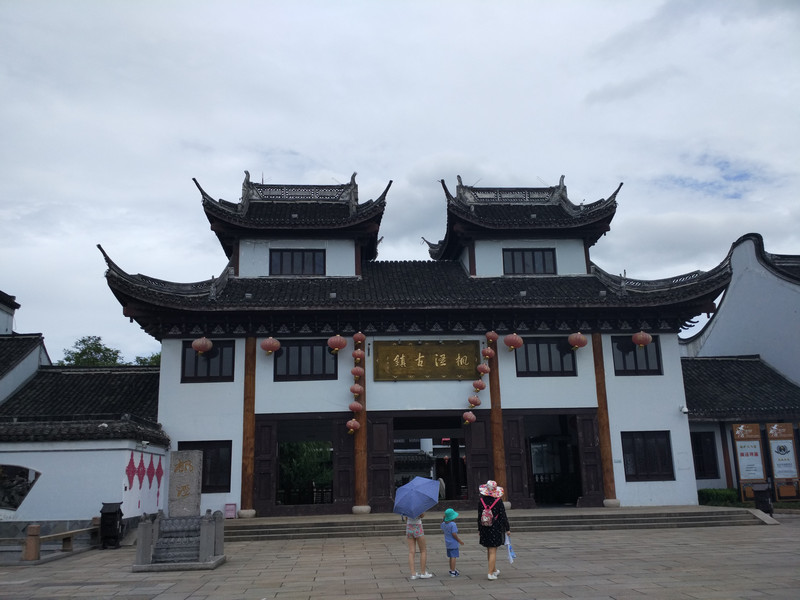
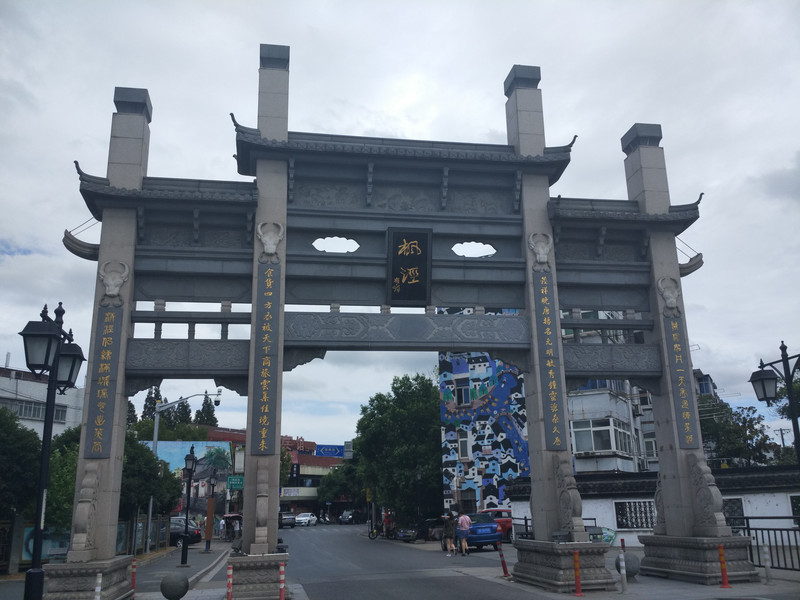
There is a ticket office in the ancient town, but you can enter without purchasing tickets. There are several small attractions in it that require tickets.
We entered the ancient town through the archway. From the map, the ancient town is too small. The first attraction is a promenade by the water's edge called Fengxi Promenade. On one side of the corridor is a small stream, probably Fengxi; on the other side is full of shops, mainly catering and specialty snacks. Because we came early, many shops were not open yet. There is a Wuyue Monument in the corridor. It was originally the dividing line between Wu and Yue during the Spring and Autumn Period and Warring States Period, and later became the dividing line between Jiangsu and Zhejiang provinces. There is a stone tablet next to it engraved with "Wu Yuejie Ji", which records the historical evolution of this boundary.
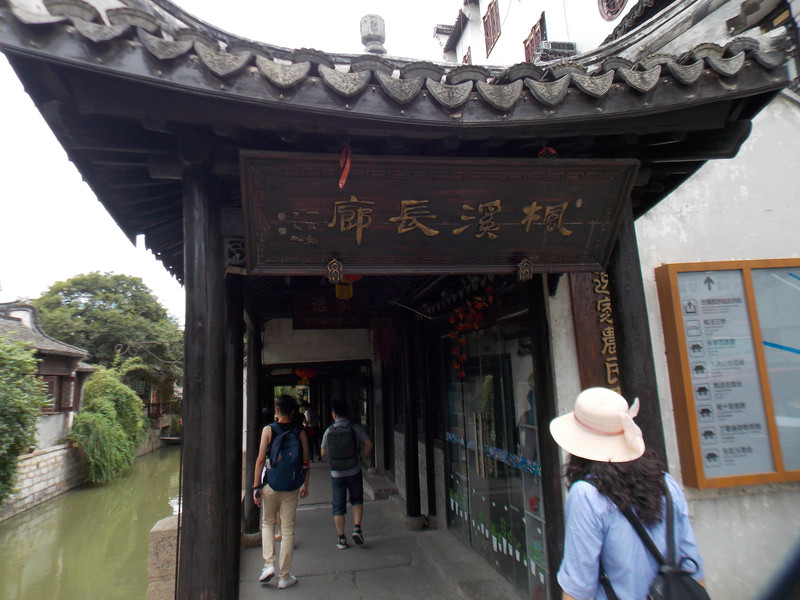
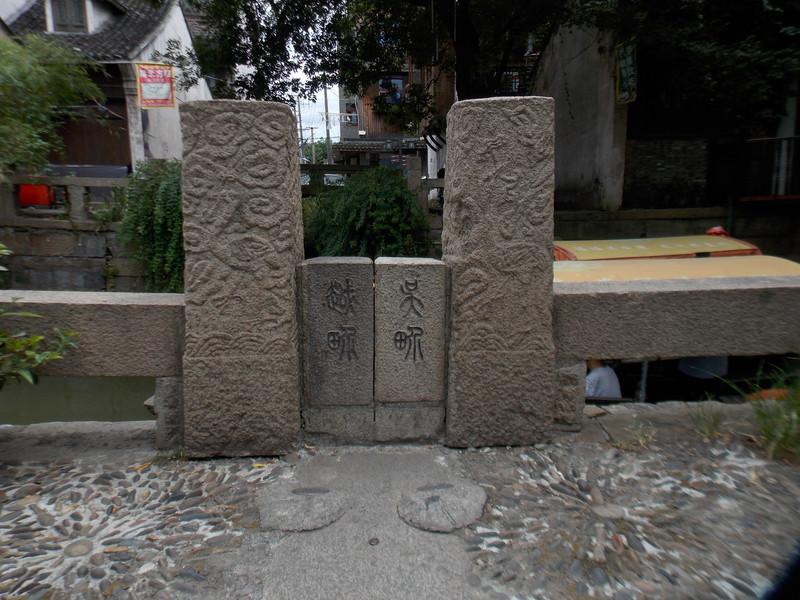
At the end of the corridor is the Fengjing Third Bridge. The three bridges are Qingfeng Bridge, Zhuxing Bridge, and Beifeng Bridge. The distance between the bridges is not far away and can appear in one picture at the same time. Taking photos on Qingfeng Bridge can capture the feeling of flowing water from a small bridge. Unfortunately, the weather is not good. On cloudy days, there are no blue skies and white clouds, only dark clouds; the river water is green, not clear, and a little dirty; the riverside is a residential house with pink walls and black tiles, but it is a little dilapidated, the walls are not white enough, and the tiles are not black enough. These all greatly reduce the scenery.
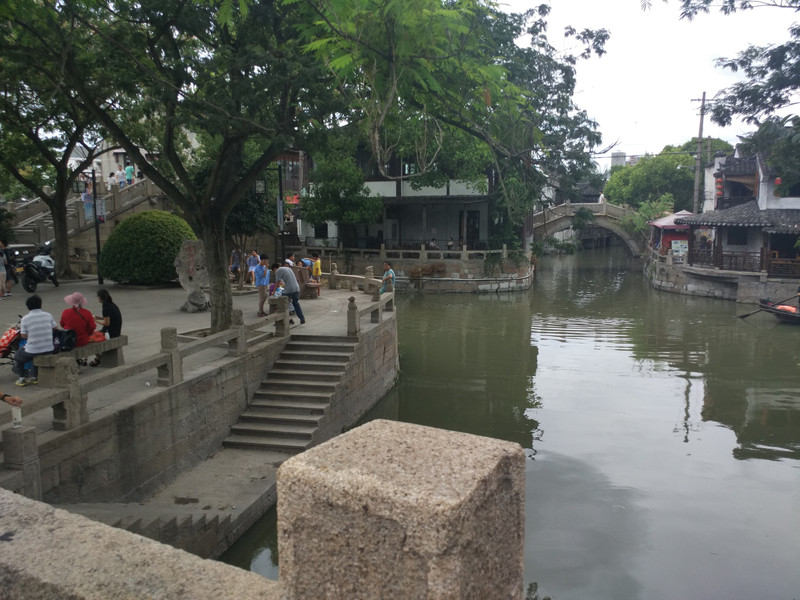
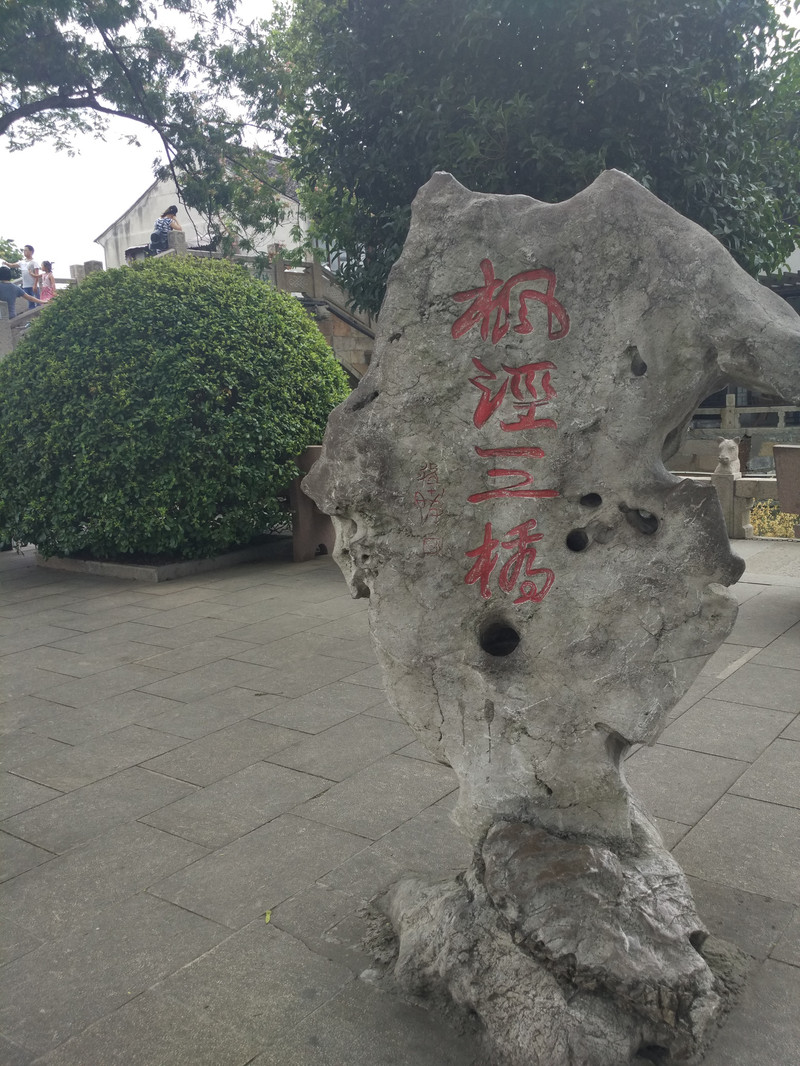
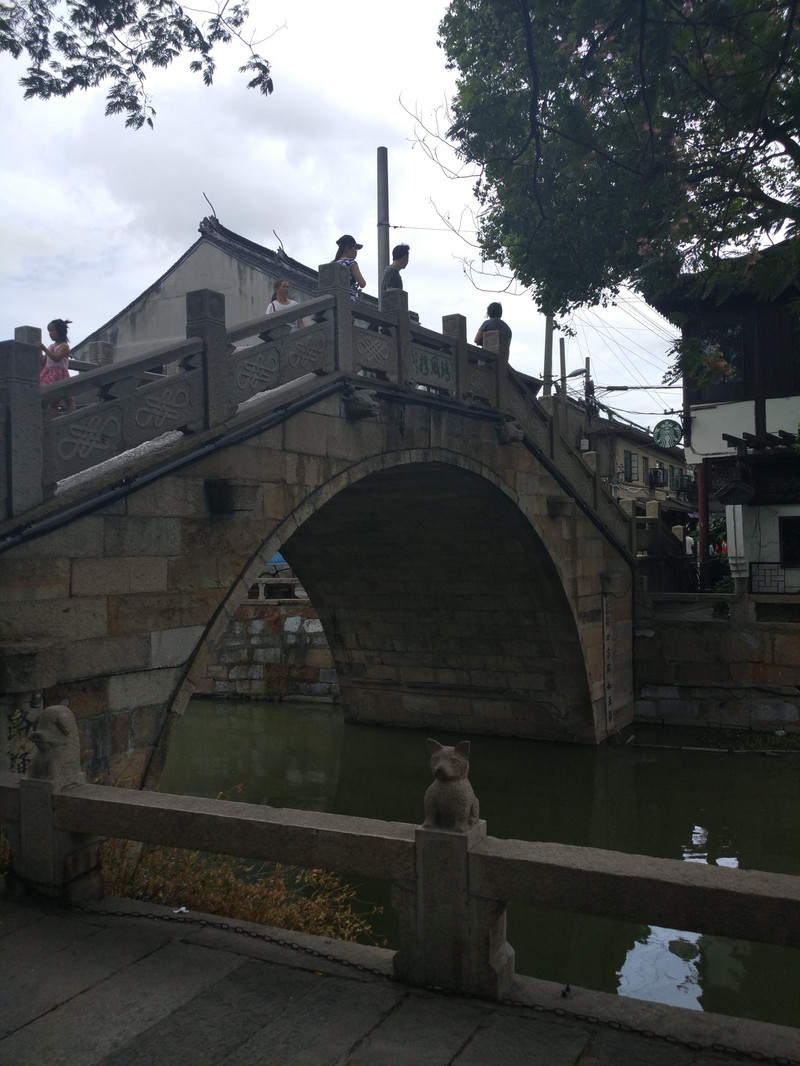

After getting off the bridge, we walked into an alley. The alley is very narrow, and there are also residential buildings with white walls and tiles on both sides. Green plants are planted at the base of the wall, mainly Lysimachia, as well as naturally growing purslane and certain melons. Unlike cucumbers, they may be loofah. This is quite interesting.
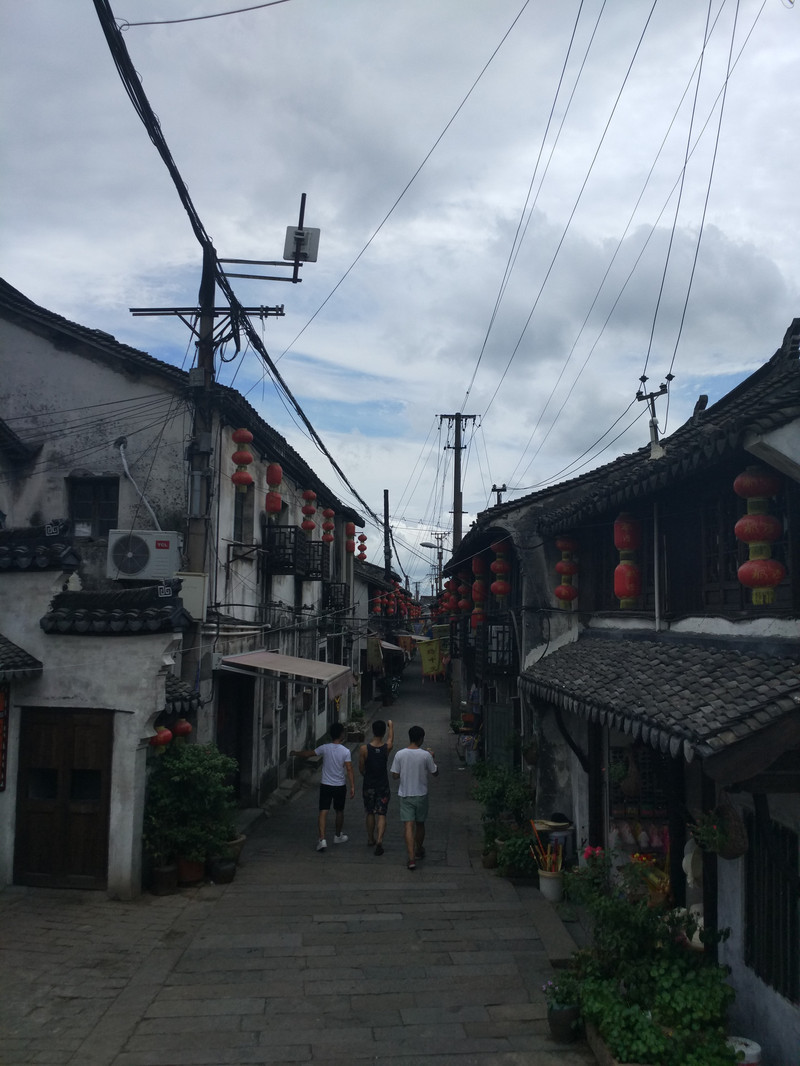
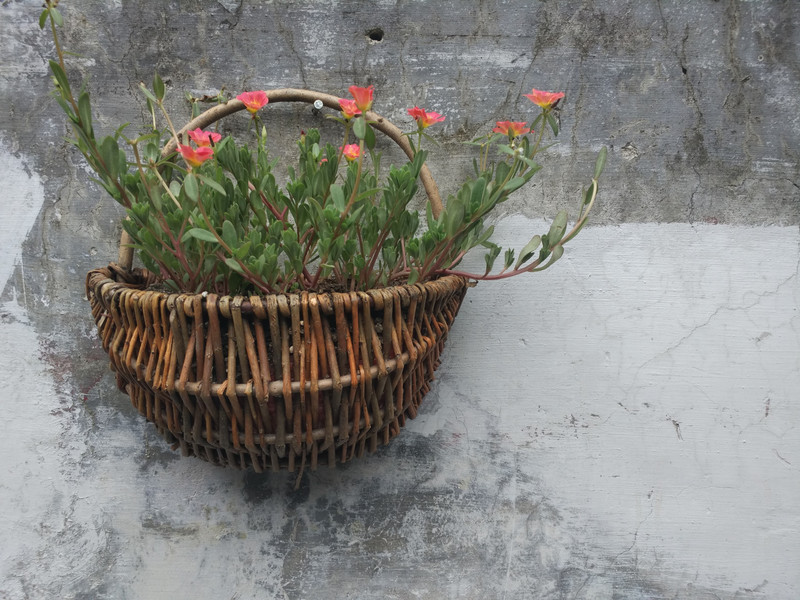
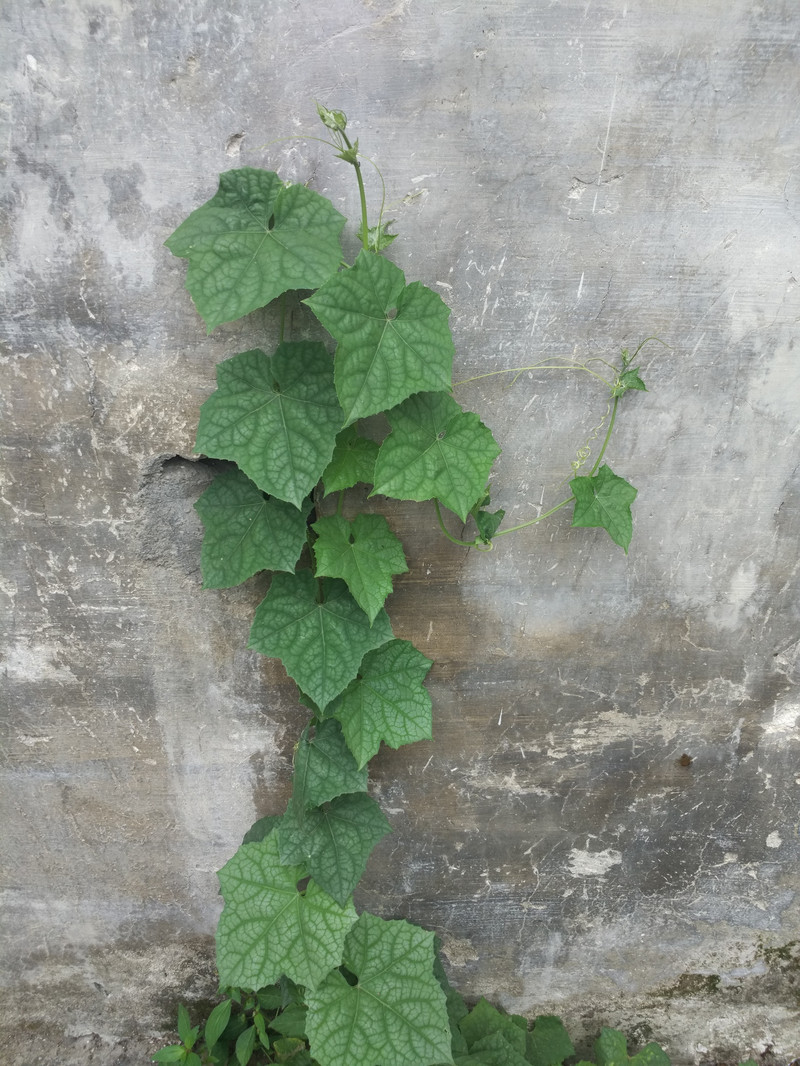
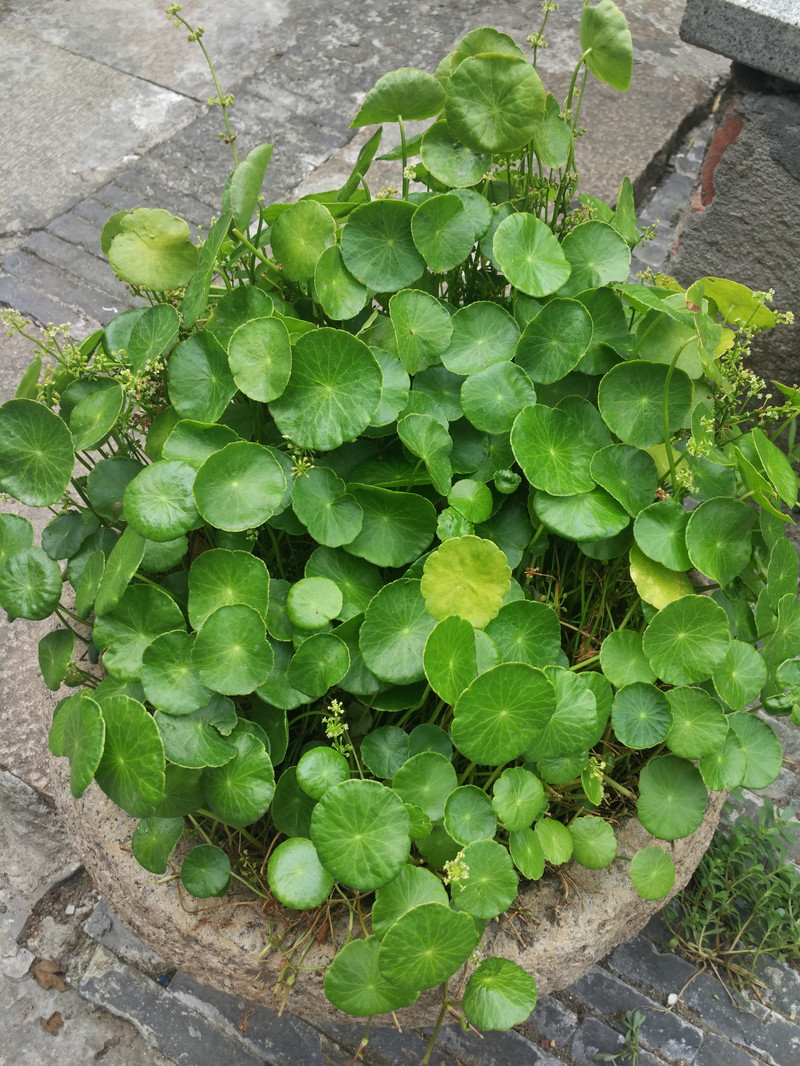
We came at a wrong time. Many small attractions in the ancient town are under renovation and are not open. It's also my fault that the ancient town didn't publicize it. Although it didn't want tickets, it still felt like it was cheated.
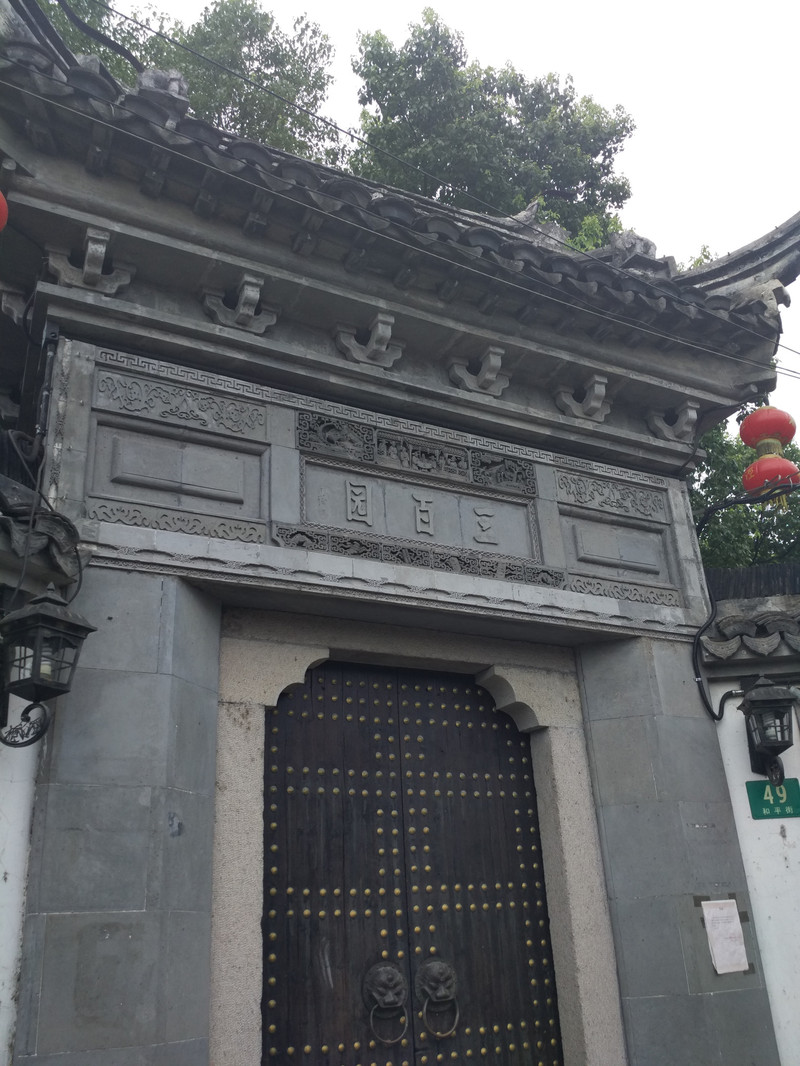
There is an ancient stage by the river, which is small in area and is said to have a lot of history. There was no performance at this time, so we sat in the audience to rest and eat some snacks. The auditorium is full of wooden benches and wooden seats with backs, both of which are quite rare nowadays.

Cheng Shifa's former residence is just ahead, but none of his friends are interested in seeing it. So we walked back through Taiping Bridge. There is the Eastern District Fire Administration Association at the bridge, which was an old fire station and is now an exhibition hall. It contains fire-fighting equipment used in the past, as well as introductions to the world's top ten fires, China's top ten fires and major fires in Shanghai.
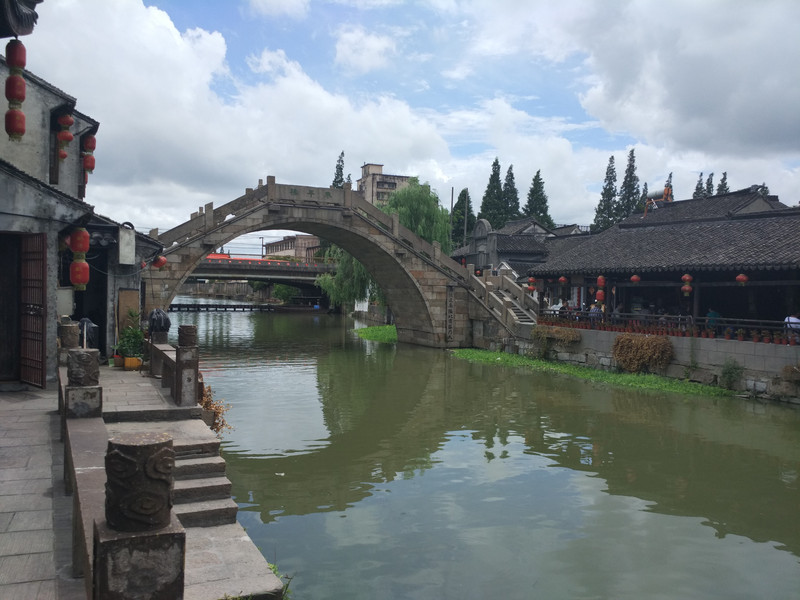
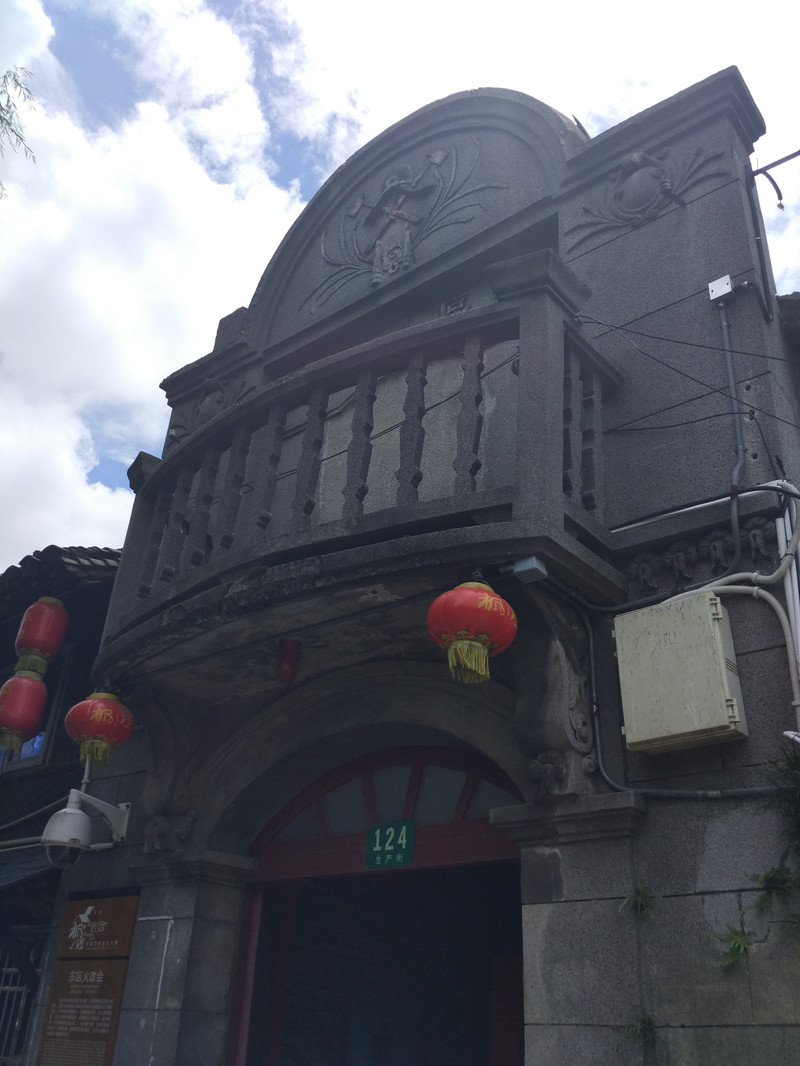
On the way back, we bought some rice dumplings to eat. The rice dumplings here are big and taste good. It's lunchtime and we don't plan to eat in the ancient town. There is nothing delicious here and the price is high. After leaving the ancient town, I found a small shop not far from the entrance and ordered a few dishes. The food tasted okay, but the dining conditions here were really poor.
tianmashan
Got in the car and walked back, I didn't have enough fun. There is Donglin Temple nearby, but few people are not interested in the temple. Looking at the map, Sheshan is not far away. Zhuzhu and I have already been to Sheshan and don't want to go there again. So we finally chose Tianma Mountain, which is not far from Sheshan.
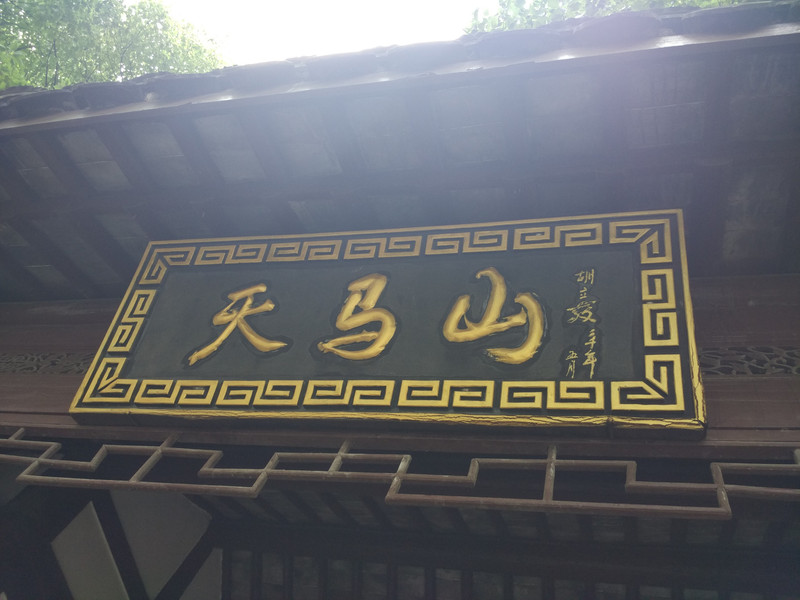
Tianma Mountain belongs to one of the nine peaks and twelve mountains in Sheshan Mountain. It was once the highest point on land in Shanghai (now Xishe Mountain) and is a famous Taoist mountain. There are many ancient relics on the mountain. We entered from the south gate. The first ancient relic we encountered was called the Pearl Protection Tower, which was a leaning tower. A big hole had collapsed in the bottom of the tower, but the tower stood still. Zhuzhu likes this tower and says it protects her. Not far from the tower is a ginkgo tree. It is said to have been planted in the Song Dynasty and has been more than 700 years old. The trunk is thick, the branches and leaves are dense, and there are countless ginkgo seeds hanging on the branches, and there is no aging at all.
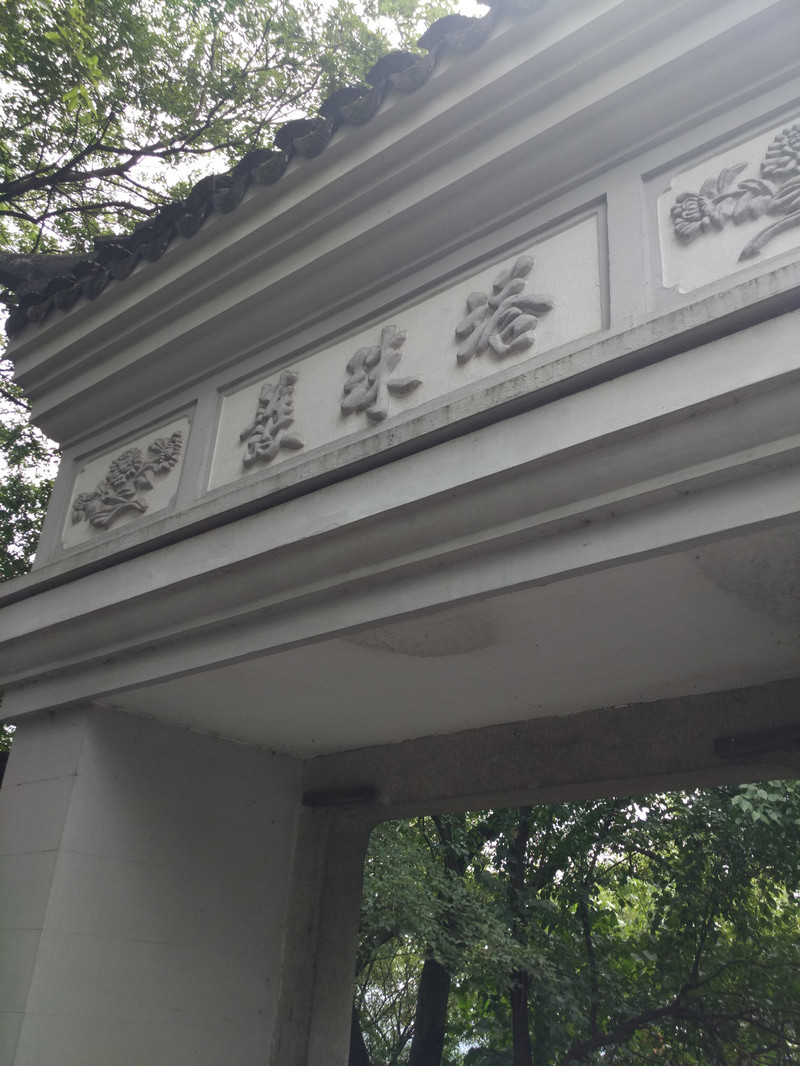
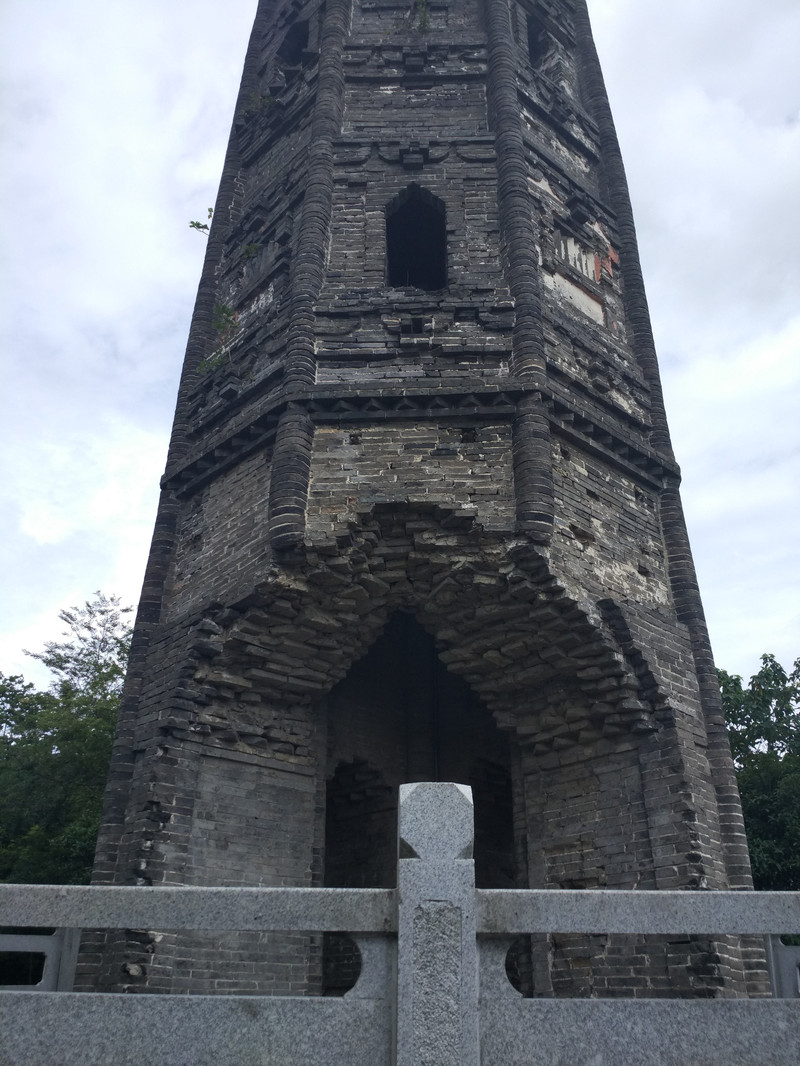
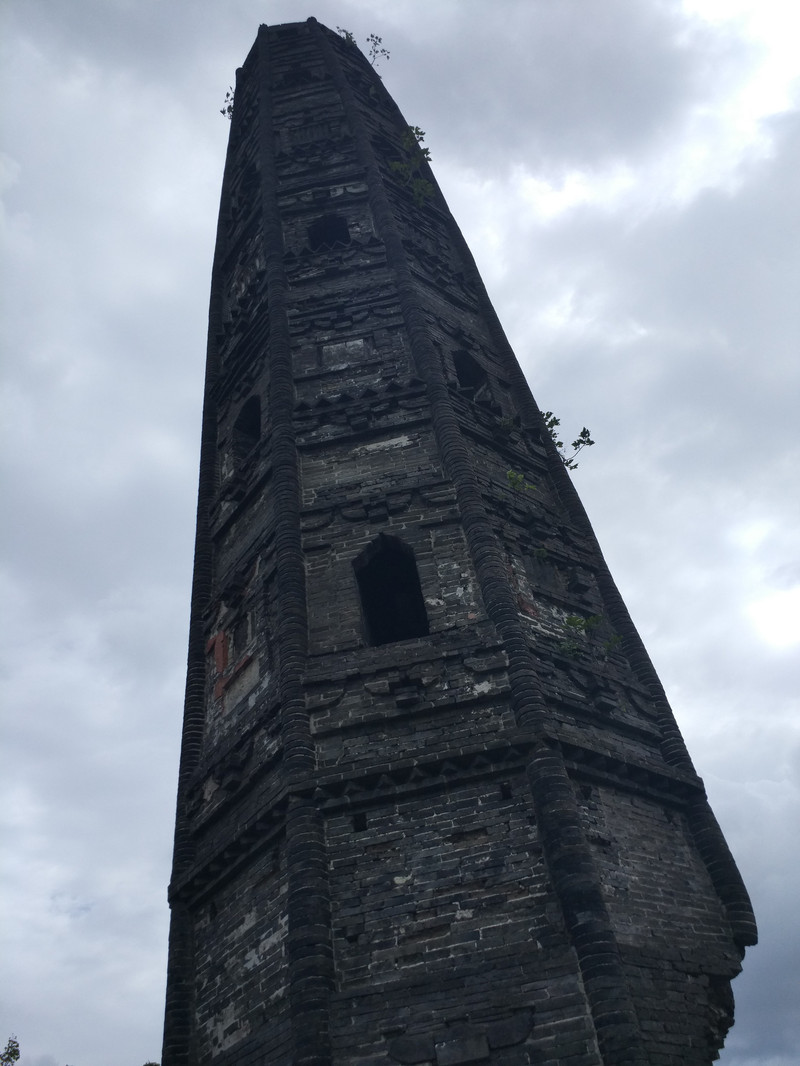
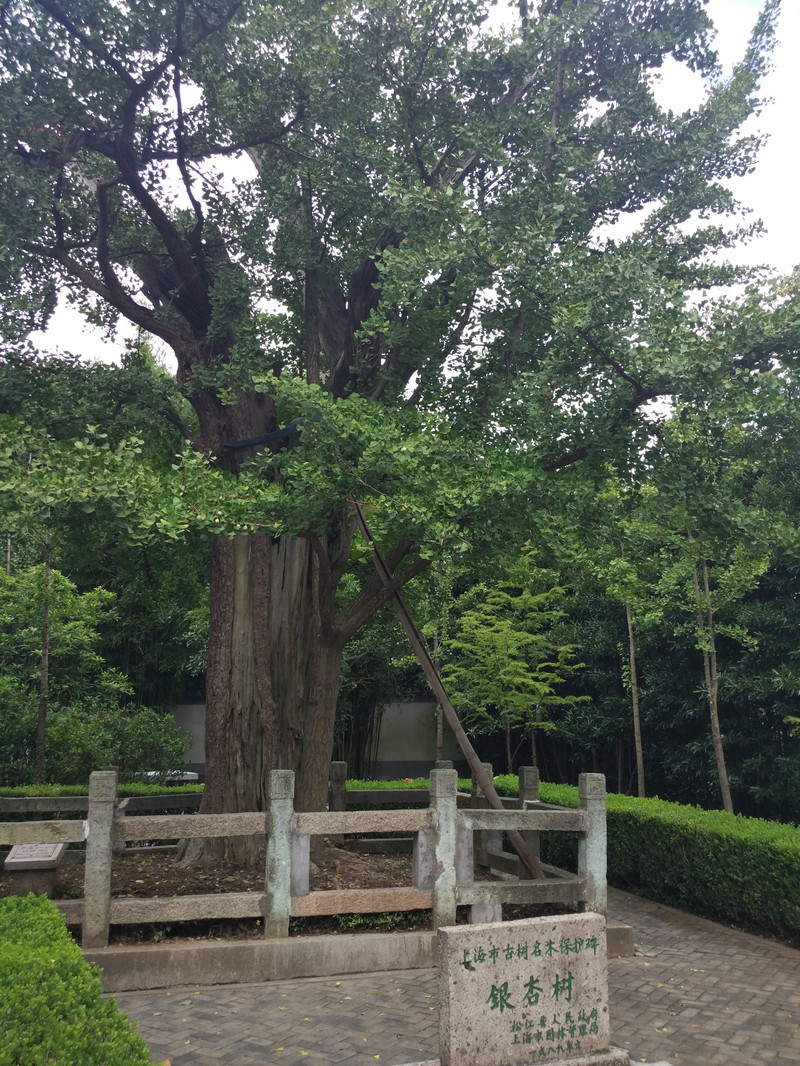
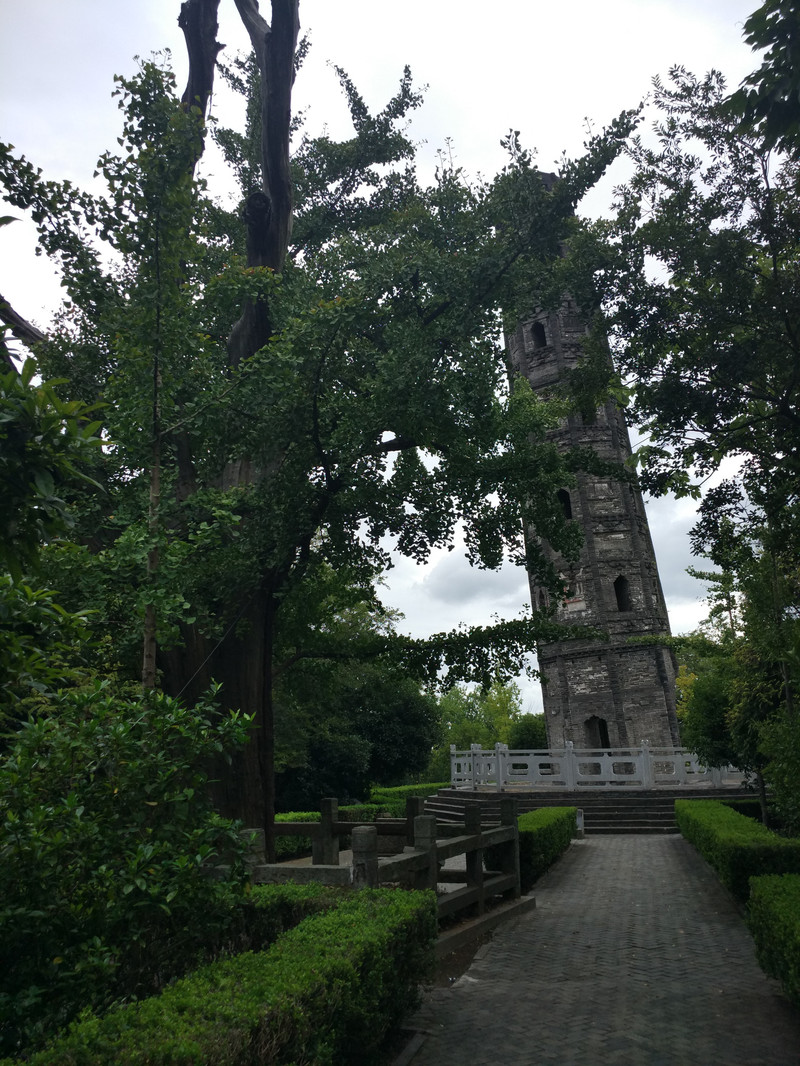
Leaving the Pearl Tower, we continued to climb up the mountain road. A white-haired and black-tailed cat accompanied us for a long way on the roadside. Because it is small, it does not need to walk on uneven roads that are full of stones. Instead, it walks lightly on cat-steps and walks on narrow roadbed rocks at no slower than ours.
Halfway up the mountain, Zhuzhu and her boyfriend sat down to rest, ate some snacks, and refused to leave again. The cat was attracted by the snacks and refused to follow us. So we divided into two groups. Zhuzhu and her boyfriend stayed to feed the cat. Then they returned to the south gate to pick up the car and drove the car to the east gate to pick us up; my two little ones and I continued to climb the mountain and finally went out from the east gate to meet them.
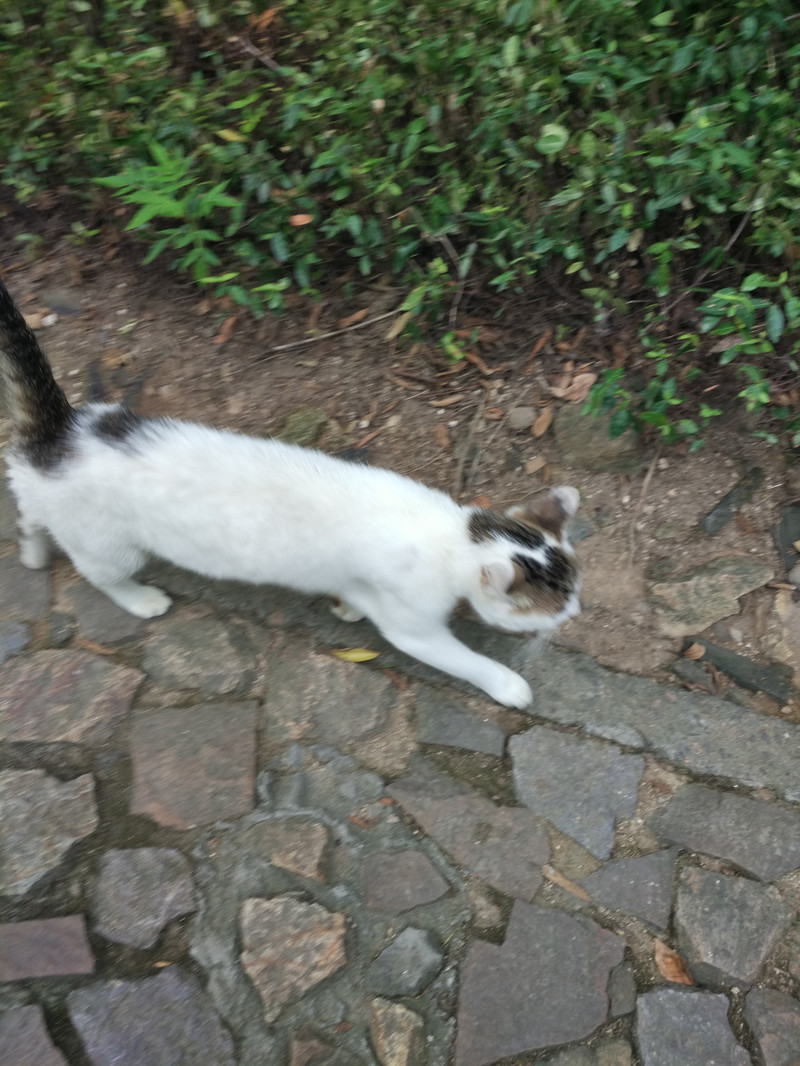
Tianma Mountain is the largest mountain forest area among the nine peaks and twelve mountains in Sheshan Mountain. Both sides of the mountain road are full of forests, especially the bamboo forests are extremely green, which is very eye-catching. No wonder the ancients said,"You can't live without bamboo".
There is an ancestral temple under maintenance on the top of the mountain. We came out quickly after entering, and then began to descend the mountain.
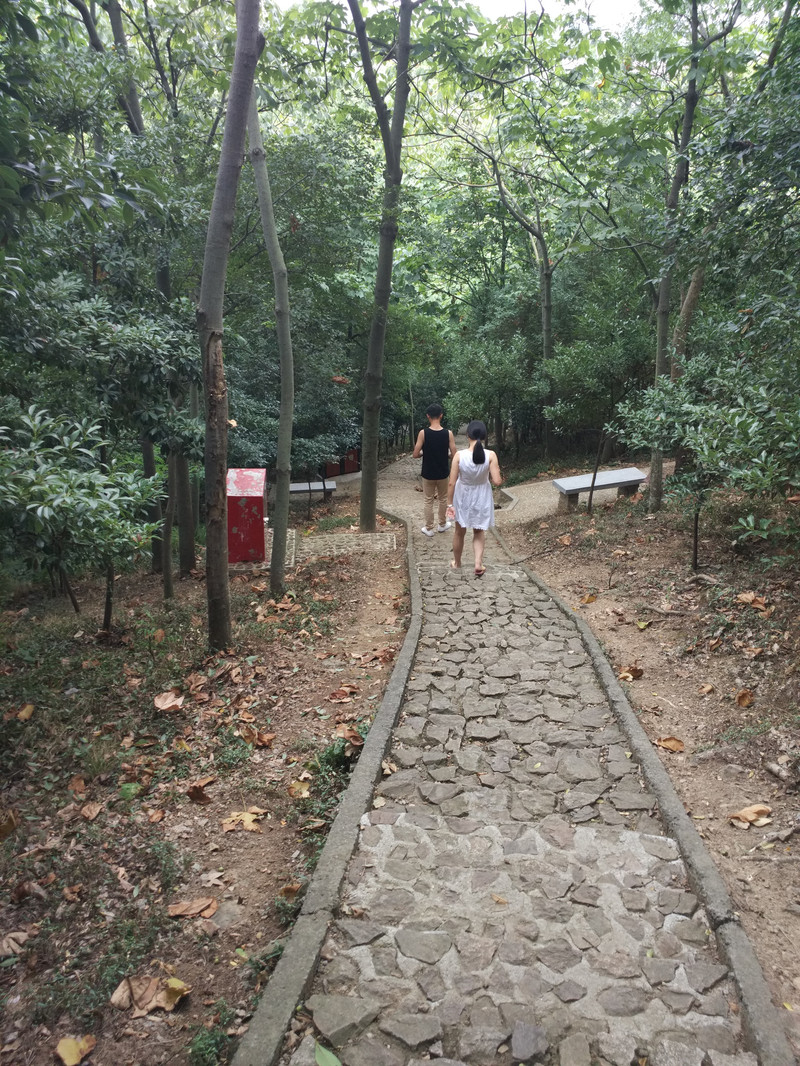
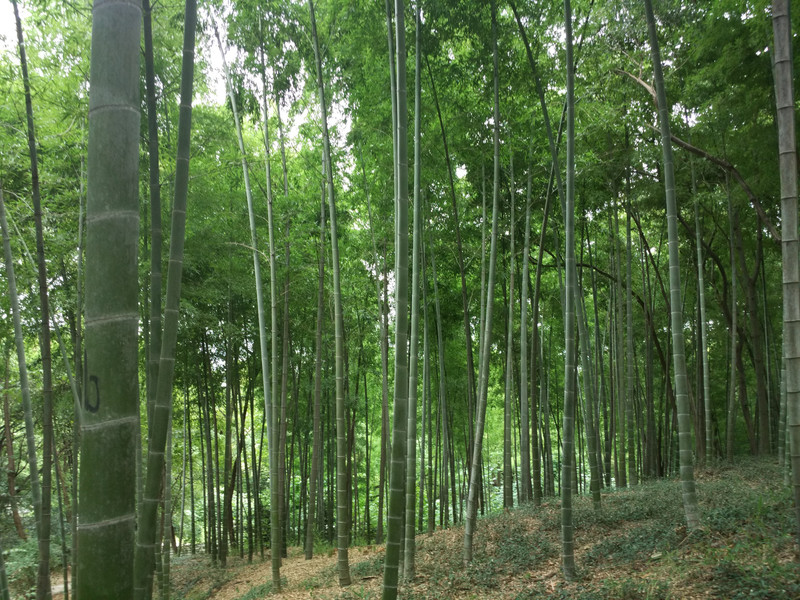
On the way down the mountain, there is a corridor pavilion called Wounsong Pavilion, but no pine trees are seen nearby. I don't know how this name came from. Next to Wosong Pavilion is a cemetery called Sangao Shi Tomb, which houses three Yuan Dynasty literati Yang Weizhen, Qian Weishan and Lu Juren.
Leaving the tomb of the three masters, we came to the oddly shaped Liuyun Pavilion. It is said to be a pavilion, but it is more like a pavilion, and it is divided into upper and lower sections. Or to put it more carefully, the upper section is like a pavilion, and the lower section is like a pavilion. It was the first time I had seen a building in this shape. There is too little information about this building, and we can't find it online. We don't know what its origin is.
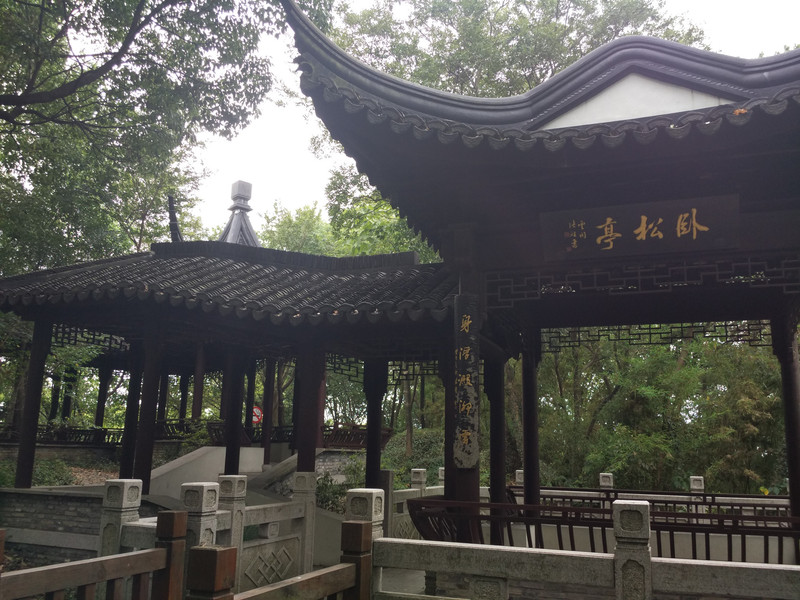
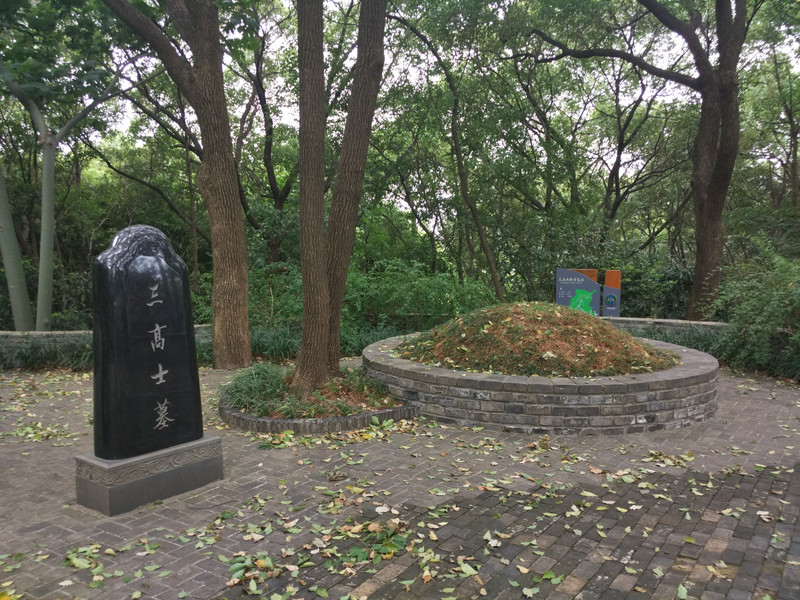
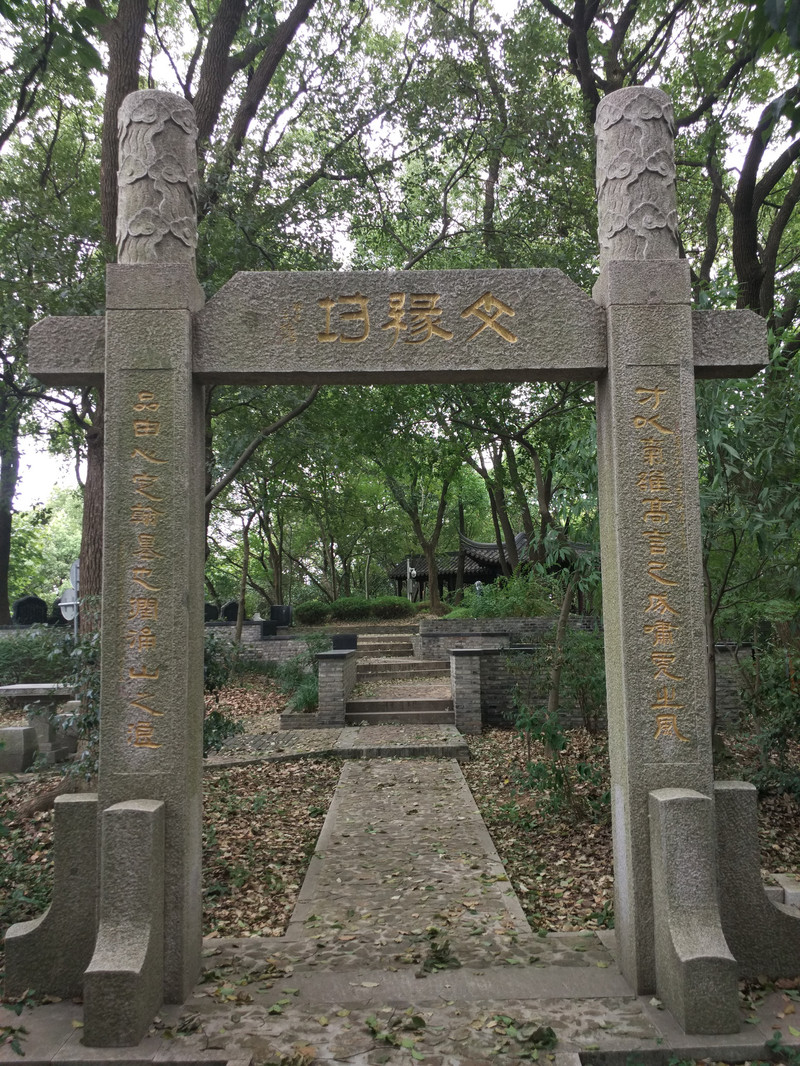
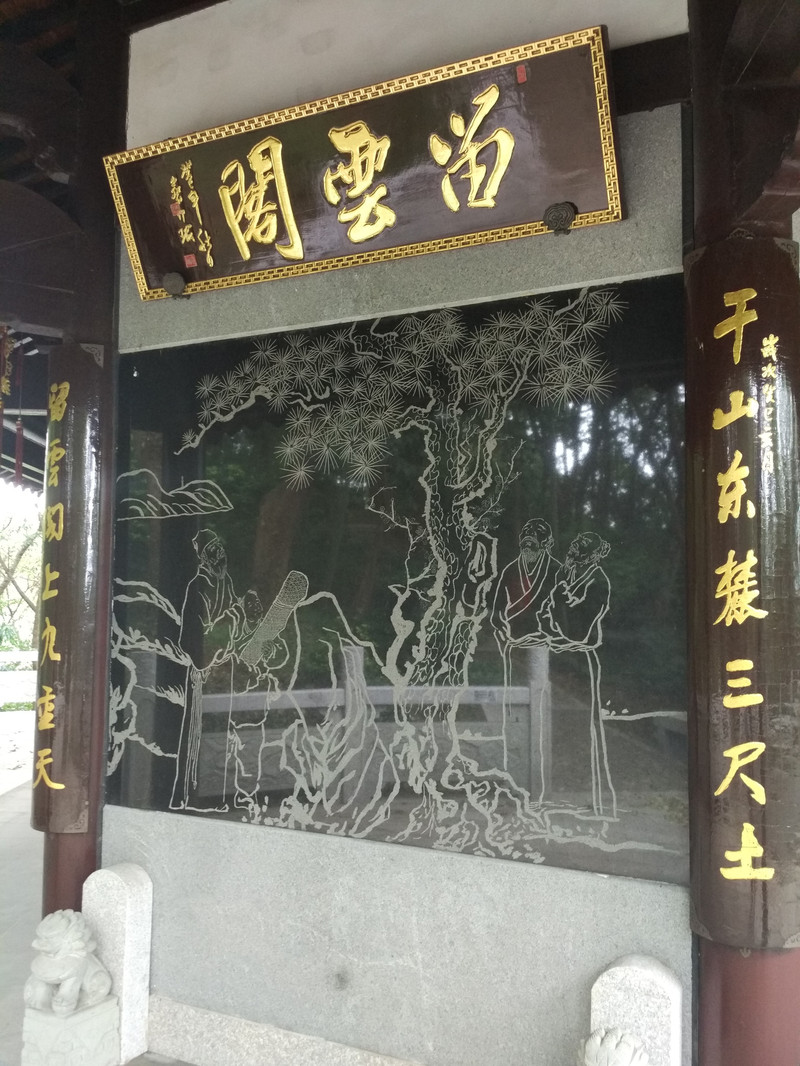
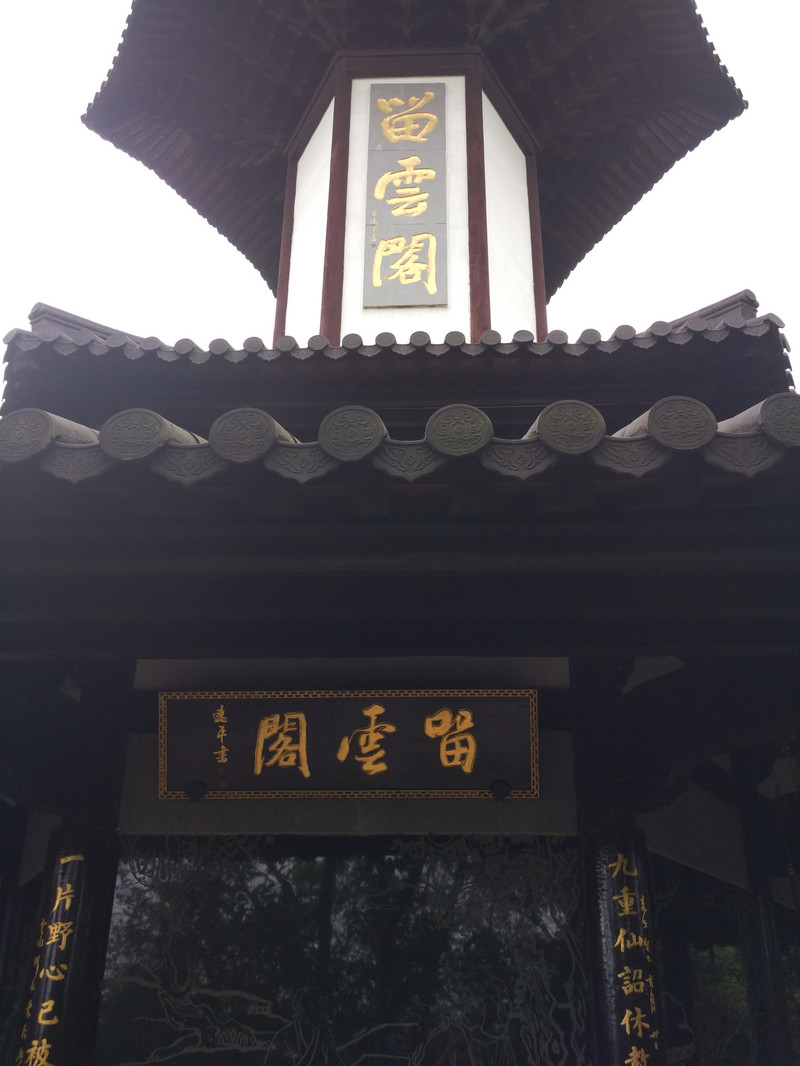
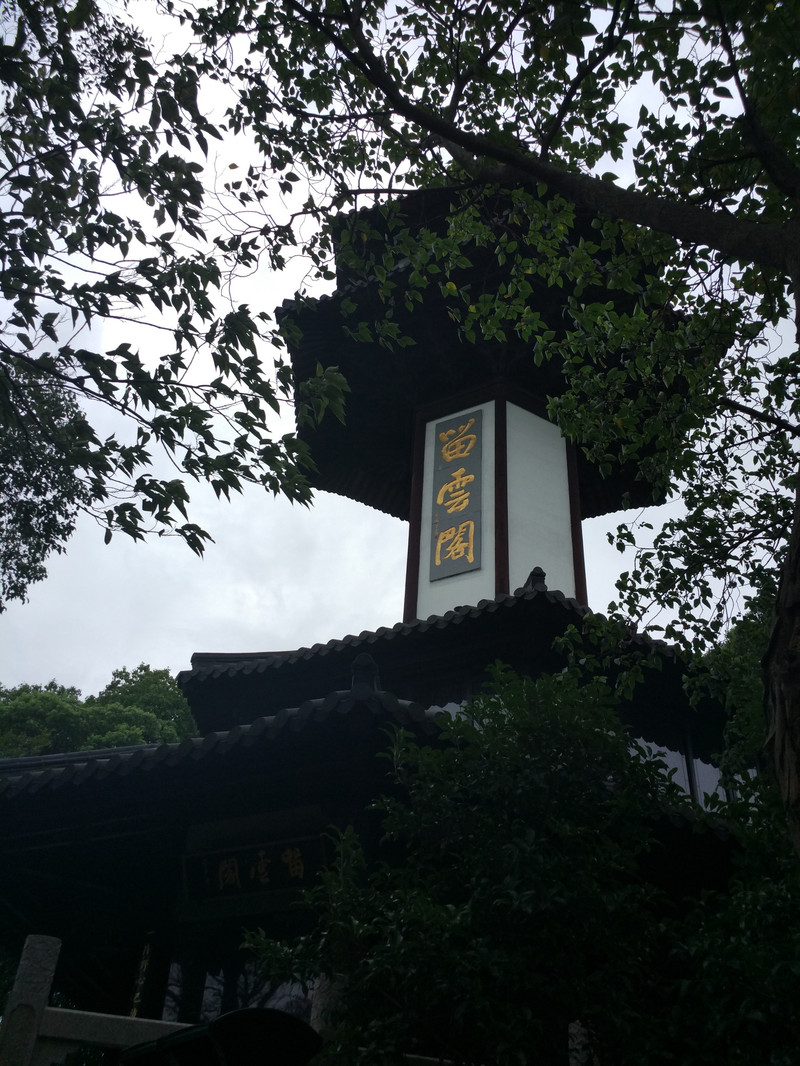
Zhuzhu and her boyfriend had already driven the car to the east gate and urged us to go down the mountain. So we quickened our pace and came out from the east gate to join them. The two little ones ran and jumped all the way without feeling tired, which was a little too much for me.
Tianma Mountain is not large, but it was still too fast for us to rush through. We didn't reach many scenic spots. I can only talk about it when I have the opportunity in the future.
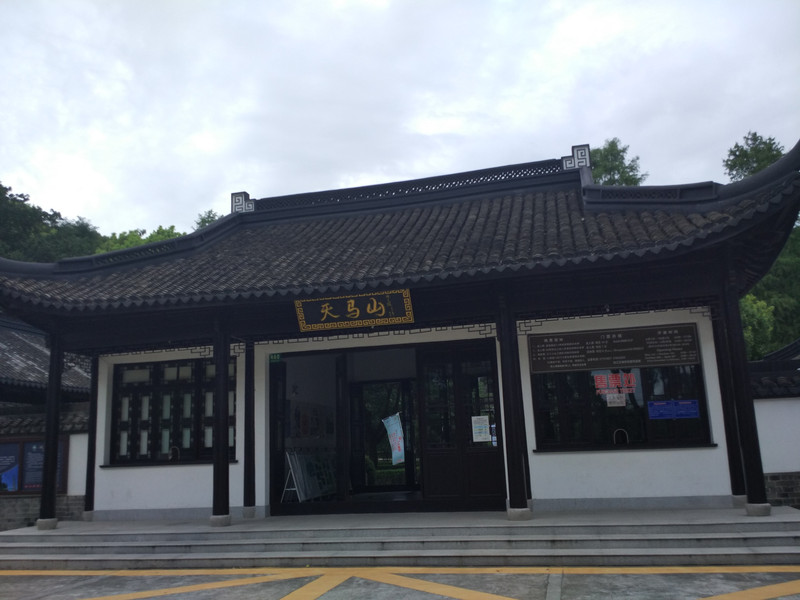
Guangfulin Site
Driving away from Tianma Mountain, we went to Songjiang University Town, planning to find a place to eat there. Passing by the Guangfulin Ruins, we were all attracted by the strange buildings here, so we stopped to take photos.
Archaeological discoveries of Neolithic relics were made in Guangfulin, making it famous. A park and exhibition hall are now being built at the site where the site was discovered. The buildings here are very distinctive. The buildings are on the water, with only the roofs exposed, as if they were submerged by water. The construction of the site has not yet been completed and has not yet been opened to the public. I really want to see what the interior looks like.
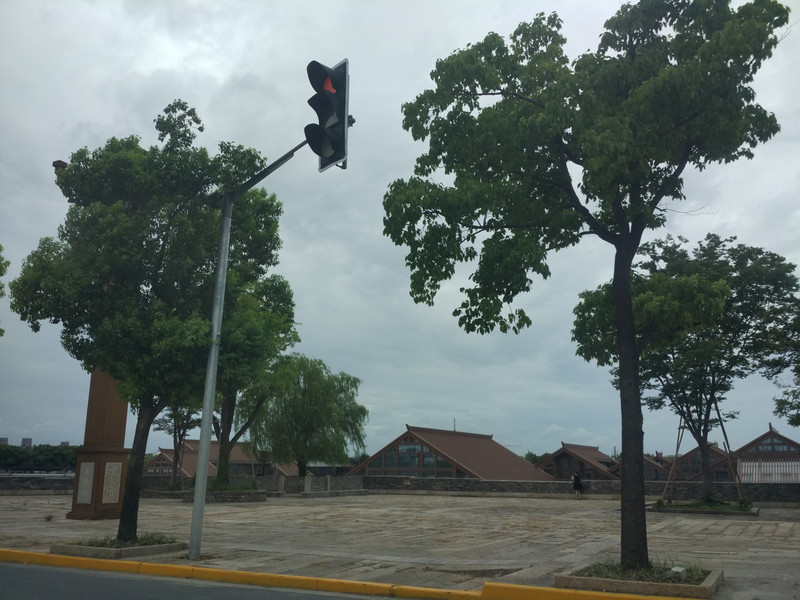
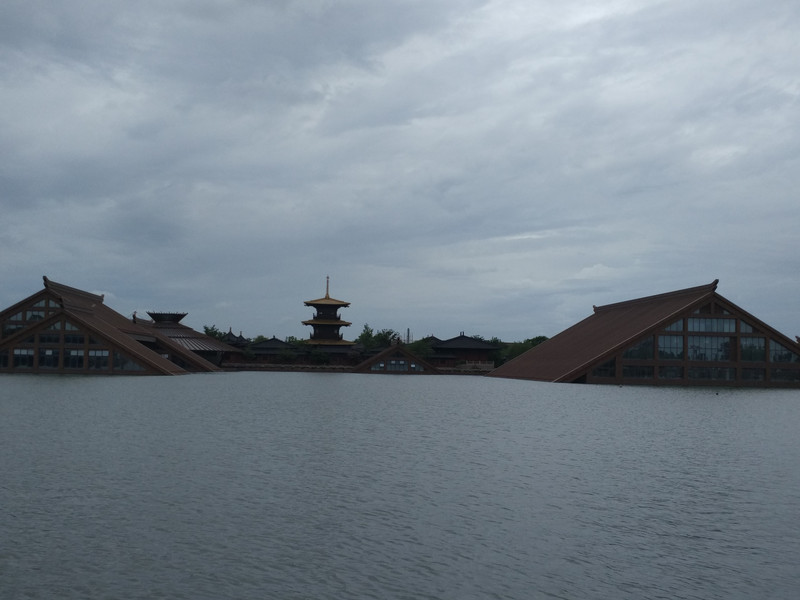
end
After leaving Guangfulin, we went to Wanda Plaza next to the university town for dinner. Because it was summer vacation, there were very few students in the university town and the streets were empty. Xiao Xu, who had just obtained his driver's license, was able to practice under Xiao Zhou's guidance.
After the dinner, we drove back to the city and ended a day of self-driving travel. The journey on this day was smooth, but the weather was bad. Due to the decoration, many scenic spots in Fengjing Ancient Town were closed. The visit to Tianma Mountain was just a quick pass, which was a pity. But overall, we had a good time today. We all said that we would go out for a self-driving tour if we had the opportunity in the future.
Previous Article:old Shanghai| Four days and three nights in-depth tour of Shanghai
Next Article:On the bank of the Huangpu River, next to the Lupu Bridge, there is a happy planet-Shanghai Songcheng
